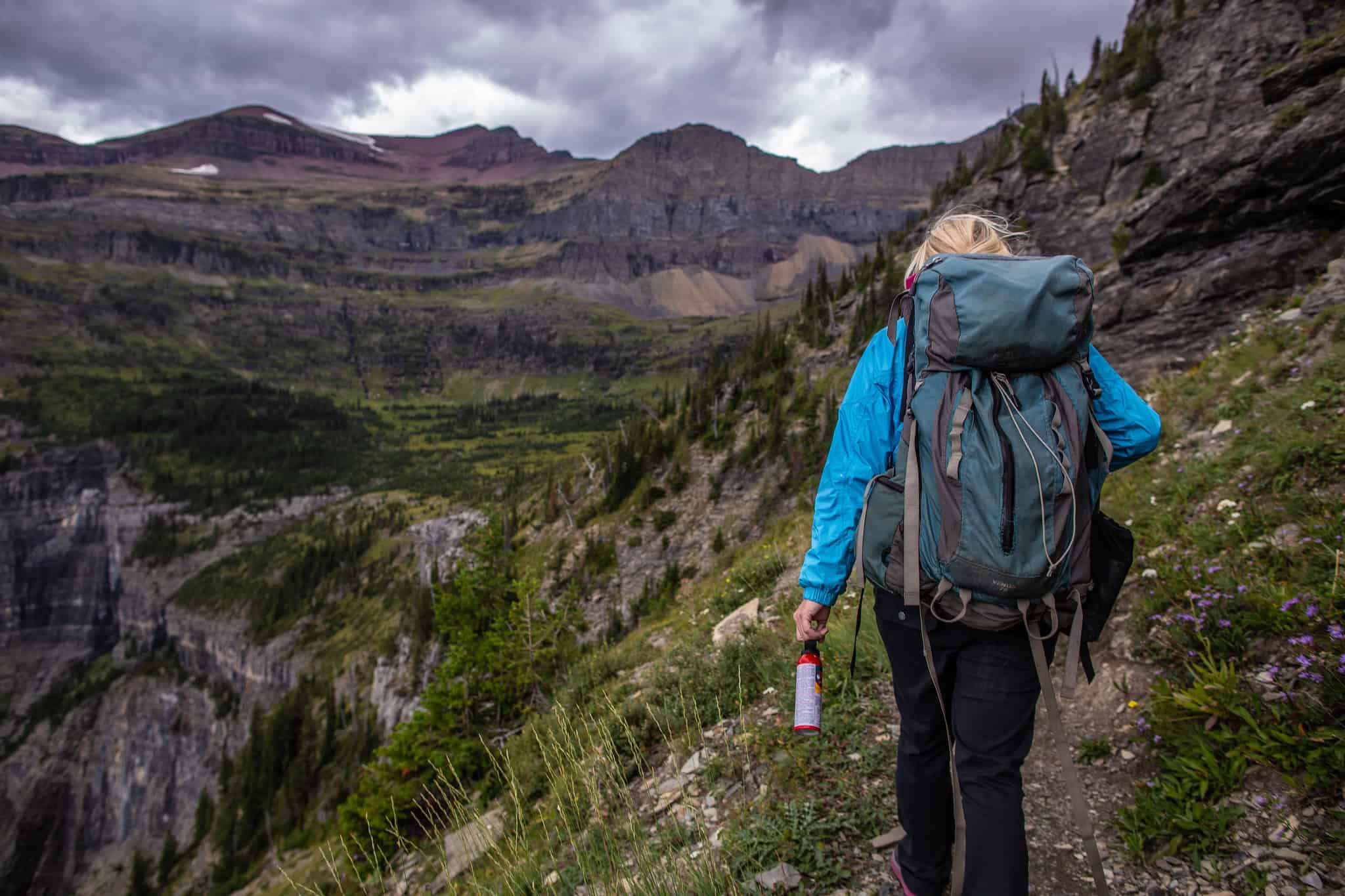Terrifying for some but thrilling for many others, backpacking is a fundamentally exciting way to experience the world.
Without a fixed schedule to limit your options or overcrowded tourist spots to dampen your enthusiasm, you can get off the beaten path and enjoy unique adventures, with every trip bringing new horizons and fresh challenges.

Most of the terror it inspires in some people stems from the freedom and lack of structure being intimidating, of course — but not all of it.
There are other compelling reasons to be wary of backpacking, with the most notable being that it’s relatively dangerous.
The beaten path doesn’t feature any surprises, but it’s very safe. Leaving it puts you at risk.
Does this mean you should be reluctant or even afraid? No, of course not.
Backpacking isn’t that much riskier than any other form of travel: it just requires you to follow some key safety rules.
If you can do that, you probably won’t experience any significant issues.
To help you proceed with care, here are six essential safety rules for backpackers.
Table of Contents
Arrange comprehensive travel insurance
Just about anything can go wrong, no matter how careful you are, but certain problems are more common to backpackers than other travelers.
Take injuries, for instance. If you slip and break your leg while hiking overseas, will you be able to cover the medical care?
It’s not uncommon for a traveler to end a hospital stay with a massive bill they can’t afford to pay.
The solution here is to ensure that you have travel insurance to cover those core needs. There are now holiday insurance options that cover you for healthcare and the money you could lose due to your journey being negatively impacted by restrictions stemming from COVID-19.
Line up a comprehensive policy, and you can proceed with confidence.
Pack basic medical supplies
If you’re away from civilization, even a simple cut on your finger can cause huge problems.
Similarly, a poorly-timed headache can leave you unable to focus properly on taking necessary safety precautions.
This is why you need to pack basic medical supplies to treat cuts and dampen any pain you might experience.
It’s easy to find travel medical kits, so choose the biggest one you can carry around.
Research an area before you visit
It’s vital to know your enemy, and a backpacker’s greatest enemy is their immediate environment.
The natural world holds more than its fair share of threats, be they animals, geographical features, and weather conditions — and the more you know about what you’ll be facing, the better you’ll be able to protect yourself.
This calls for extensive research.
You may not know exactly where you’ll be going, but you’ll know the broad area, and you can use that to form a solid idea of what the temperature will be and what wildlife you’ll encounter.
You won’t be caught out in the bitter cold in just a T-shirt and shorts or struggle to get through bramble patches because your clothing can’t stand up to the friction.
Keep friends updated on your location
Now that smartphones are common and internet access is reasonably easy to achieve almost anywhere in the world (mobile hotspots are affordable), there’s no reason not to keep friends updated about where you’re going.
The more dangerous the area, the more important it is to be clear.
That way, if you don’t check back in by a specific time because you’re stuck somewhere, they can call for help (and possibly save your life).
Safeguard your money and valuables
Even though the pandemic has reminded people of the importance of community spirit, it hasn’t changed human nature, and there are still plenty of pickpockets around.
Relying on the decency and kindness of strangers will always be a risky move.
Due to this, you shouldn’t make the core mistake of keeping all your valuables in a conspicuous place.
If those vital things (including your money and passport) get stolen, you’ll be left in a challenging position.
So don’t make it easy. Keep different things in different compartments. Lock them, if you can.
Fill other pockets with less essential items, so it’s harder to tell where the most important things are.
And don’t be too quick to trust the people you meet. Enjoy their company, but take your time to decide whether they’re trustworthy.
Take company whenever possible
The solitude of backpacking can be extremely nice, but it’s always safer to be part of a group — so if you have the opportunity to travel with someone, you should take it.
Vet them first to ensure that you can trust them, of course (don’t just leave with someone you just met), but always be aware that there’s strength in numbers.
You’ll also enjoy your backpacking more if you can break up the parts alone with some group adventures.
_____
This story is brought to you in partnership with Post Office.
This post was written by a guest contributor. Please reference the author's byline in the post above for more information. If you would like to guest post on Go Backpacking, please read our submission guidelines. For information on advertising opportunities, go here.
Planning a trip? Go Backpacking recommends:
- G Adventures for small group tours.
- Hostelworld for booking hostels.
